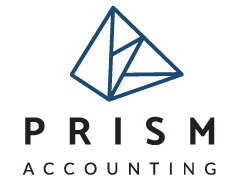Did you get an unexpected tax bill from the ATO for Division 293 Tax, just when you thought you had everything sorted with your income tax return? You are not alone! With tax lodgment deadlines fast approaching, Division 293 assessments are beginning to roll out, catching many doctors off guard.
What is Division 293 Tax?
Division 293 Tax is an additional 15% tax imposed on concessional contributions of individuals, if the sum of the following exceeds the “high income” threshold of $250,000:
- Adjusted Taxable Income for surcharge purposes (disregarding reportable super contributions), and
- Concessional super contributions in the same year
(For simplicity, I will refer to this sum as “adjusted taxable income for Division 293 Tax”, or simply “total income” in this article.)
Adjusted taxable income for Division 293 Tax purposes can be calculated as the following:
(+) Taxable Income (as shown on Tax Return)
(+) Reportable Fringe Benefits (grossed up value)
(+) Net loss on financial Investments
(+) Net rental property loss
(+) Amounts on which family trust tax has been paid
(-) Taxable component of super lump sum with a zero tax rate
(-) Assessable First Home Super Saver (FHSS) released amount
(+) Concessional Super Contributions
Concessional contributions generally include:
- Employer Super Contributions (super guarantee, salary sacrificed amounts and other reportable employer contributions)
- Super Contributions paid under sessional VMO contracts
- Personal Contributions allowed as tax deduction
(Please note, there are special rules for defined benefit interests, constitutionally protected State higher level office holders, certain Commonwealth justices, which are not considered in this article.)
How Division 293 tax is calculated
Division 293 Tax is calculated as 15% of your concessional super contributions in excess of the $250,000 threshold (“taxable contributions”).
That is, if your adjusted taxable income before super contributions is below the threshold but the contributions amount makes it to exceed the threshold, you will only be taxed on the excess over the threshold.
Example:
| Scenario 1 | Scenario 2 | |
| Taxable Income | 200000 | 250000 |
| Fringe benefits (grossed up) | 17000 | 17000 |
| Net Investment Loss | ||
| Net Rental Property Loss | 20000 | 20000 |
| Concessional Contributions (CC) | 27000 | 27000 |
| ATI for Division 293 Tax | 264000 | 314000 |
| Taxable amount of contribution | 14000 | 27000 |
| Division 293 Tax at 15% | 2100 | 4050 |
Scenario 1
- Your taxable income shown on your income tax assessment is $200,000;
- Your grossed up fringe benefit amount from salary package arrangement is $17,000;
- You declared a $20 000 of rental property loss in your tax return (which you have to add back);
- Your concessional super contributions (employer super guarantee and personal contributions) in the same year were $27000.
Your adjusted taxable income before super contributions is below the threshold ($237,000). When contributions are added, the total income ($264,000) exceeds the threshold by $14,000.
Division 293 Tax is only payable on the excess, and not on the entire amount of the contribution.
Scenario 2
Assume that your taxable income is $250,000 with all your other details remaining the same.
As your adjusted taxable income before super contributions is above the threshold, the entire amount of your super contributions is taxable under Division 293.
The rationale behind Division 293 Tax
Division 293 Tax was first introduced in the 2012-2013 federal budget by the Labor government as a measure “to improve the fairness, sustainability and efficiency of the superannuation system”.
The measure was designed to reduce the tax benefit high income earners are getting from having some amounts of their income concessionally taxed inside the superannuation system.
If you are a high income earner, your marginal tax rate is 47% (including Medicare) but when certain amounts of your income are paid to your superfund and taxed at 15%, you get a tax concession of 32% from the superannuation system. In comparison, someone on a marginal tax rate of 34.5% will only get a concession of 19.5%.
According to the government’s logic, the benefit received by high income earners was disproportionate to the rest of the population. Division 293 Tax was implemented with the aim to reduce the gap by taxing super contributions of individuals earning over $300,000 at 30% instead of 15%, to align it more closely with the level of concession received by average income earners.
Division 293 Tax is becoming more widespread
Initially, when Division 293 Tax was introduced, it applied to high-income earners with a total income over $300,000, which was considered quite substantial at the time.
However, when the government drafted the legislation back in 2012, they failed to incorporate indexation of the “high income threshold” by the inflation factor.
Subsequently, in 2017, under the Liberal government, the threshold was lowered to $250,000.
As costs of living continue to rise, alongside inflation, indexation of wages and increasing super guarantee rates, the portion of the population affected by it will gradually increase over time.
Frequently Asked Questions
Can I do anything to avoid or reduce Division 293 Tax?
The only viable strategy to reduce your Division 293 Tax exposure is to plan around the timing of your personal contributions. If you are consistently earning way above the threshold, your options will probably be very limited. However, if your income tends to fluctuate from one year to another, or if you are able to manipulate the timing of your income, you have more planning opportunities available to you.
Planning for Division 293 Tax should a part of the overall tax strategy, it shouldn’t be taken out of the context.
Is it still beneficial to make tax deductible personal contributions when division 293 tax applies.
Making tax deductible personal contributions is an effective tax minimisation strategy for high income earners but the effectiveness is diminished where Division 293 Tax applies.
If your marginal tax rate, including Medicare is 47%, but your contribution is taxed at 30% inside your super fund, you are still saving 17% of the contribution amount, so making tax deductible super contributions is still tax effective.
Does Division 293 tax apply to non-residents and temporary residents?
Division 293 Tax applies to taxpayers with adjusted income exceeding the threshold, irrespective of their residency status.
However, if you withdraw your super as a temporary resident departing Australia, you will get a refund of your Division 293 Tax you paid during the time you were a temporary resident.
Is Division 293 Tax payable on excess super contributions
No. When you exceed your available concessional contribution cap, the concessional tax treatment on the excess is effectively reversed and the amount no longer counts as your confessional contribution, so Division 293 Tax is not payable on the excess.
Can one-off events trigger Division 293 tax?
Certain events, such as capital gains and termination payments, can make your income exceed the threshold for a particular year triggering Division 293 Tax, even if your regular income normally does not exceed the threshold.
How to pay Division 293 Tax
To pay Division 293 Tax, you have two options:
- Pay it out of your own funds; or
- Elect to release money from any of your existing super funds.
There are no tax benefits to either of the options. Your choice should be based on your current priorities and cash flow situation.
If you choose to pay your Division 293 Tax from your super balance, you will need to complete an election form to notify the ATO of your choice within 60 days from the date of your Division 293 assessment.
To complete an election form, you can login to ATO online services using MyGov. Alternatively, you can download an election from the ATO website.
Please note that even though your election form is valid for 60 days, you still need to pay your liability by the due date to avoid incurring interest charges.
The payment due date and the cut-off date for making an election will be stated on your Division 293 assessment.
What if my Division 293 assessment is incorrect?
The most common cause of incorrect Division 293 assessment is incorrect reporting of concessional contribution amounts by your super fund to the ATO.
If you receive an incorrect Division 293 assessment, you need to check to carefully check your contributions in the year on your super fund statements and contact your super fund if you find any discrepancies.
Once your super fund corrects their information reported to the ATO, your Division 293 assessment will be amended.
If there was an error made by the ATO on your Division 293 assessment, you can lodge an objection.
If you do lodge an objection, you still need to pay the amount due on the assessment by the due date (pay now, fight later).
Why didn’t my accountant tell me about my Division 293 liability?
Division 293 Tax is not part of your tax return. It is a separate assessment issued by the ATO based on the information reported to them by super funds. Your accountant does not have any direct involvement in the process.
If the scope of engagement with your accountant was limited to completing a tax return, technically, they are not obliged to inform you of any other obligations.
In case you work with a regular tax adviser, they may have been unaware of any concessional super contributions or did not have sufficient information about your contributions due to reporting limitations, to give you an accurate prediction of your Division 293 liability. However, you should expect your adviser to at least inform you if Division 293 Tax is likely to apply to you based on your circumstances.
As medical professionals tend to be high income earners, a lot of doctors encounter Division 293 Tax. Being aware of its implications and being prepared is crucial. It is wise for doctors to proactively engage with their accountants to navigate the complexities of Division 293 Tax and ensure their financial affairs are in order.
Need Help?
Prism Accounting specialises in providing taxation and accounting services to medical and dental professionals.
Contact us today to make an appointment with our specialist tax adviser.
Disclaimer: All the information provided on this website is of general nature and does not constitute tax, legal or financial advice. It does not take into account your personal circumstances and is not intended to replace consultation with a qualified professional.




